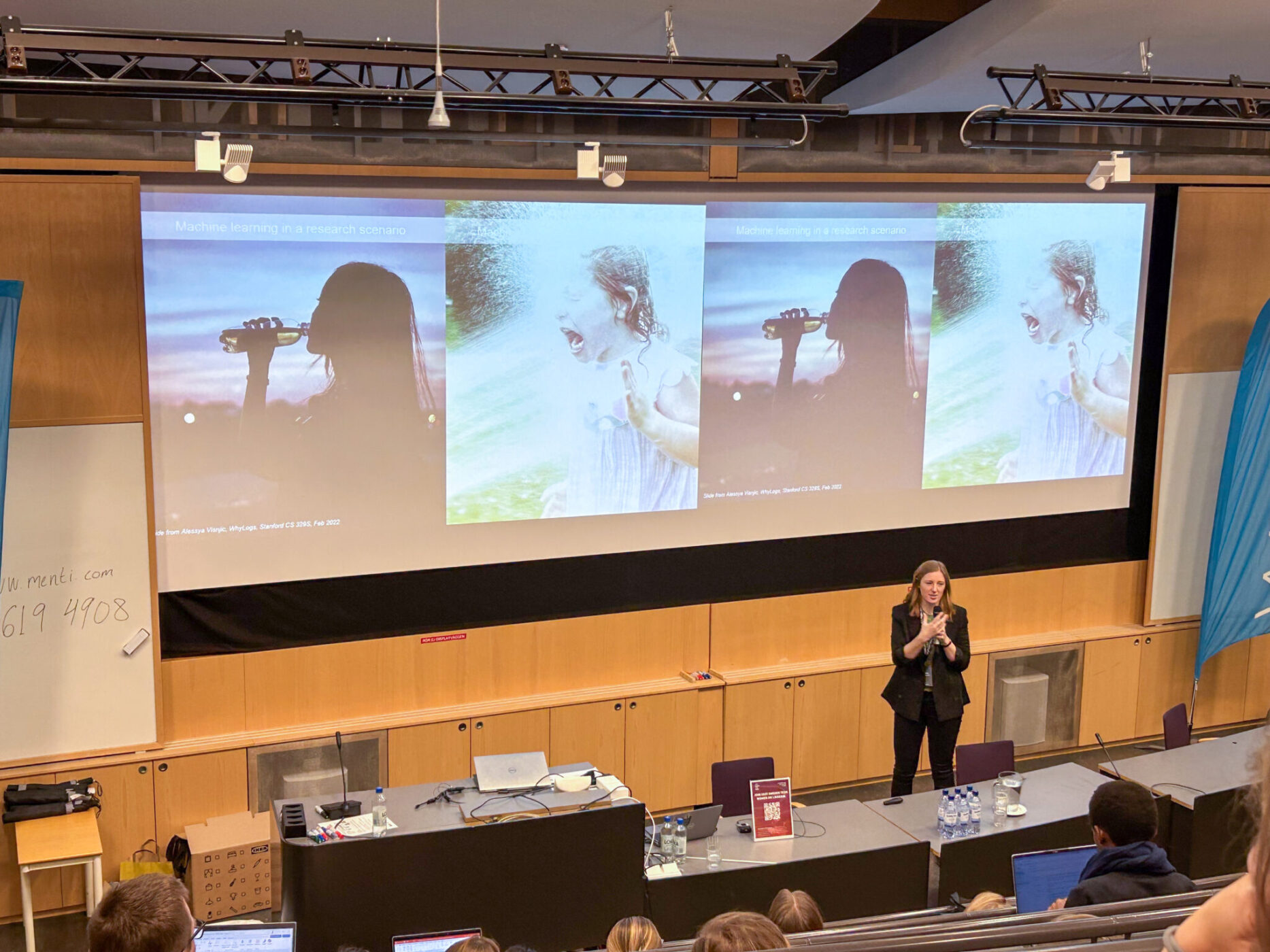How do we increase diversity in the groups that are shaping the future of machine learning? That was the central question for the Women in Machine Learning Workshop recently held at Linköping University.
Machine learning is undeniably at the forefront of technological advancement today, influencing contemporary society and everyday life. However, several groups, including women and non-binary people, remain underrepresented in the field. The Women in Machine Learning Workshop aimed to encourage diversity and inclusion within the field by connecting like-minded beginners and experts and offering research talks and career advice.
The interest to take part in the workshop was very high and the original number of spots had to be doubled, still there was a waiting list. The participants ranged from university students to professors and industry professionals.
The only female PhD student in her research group
The workshop was organized by representatives from Linköping University and Chalmers University of Technology as part of the WASP Diversity and Inclusion Group activities. Amanda Olmin, a recently graduated WASP PhD, and one of the organizers, had the idea to this workshop during her PhD in Machine Learning.
“It started at my division here at Linköping University, the Division of Statistics and Machine Learning where I, at that time, was the only female PhD student among about ten PhD students. This brought our attention to the need to foster a more inclusive and diverse community”, says Amanda.
Amanda and her colleagues took action and organized this workshop, targeting everyone interested in machine learning and the topic of increasing the active participation of underrepresented groups in the field.
Highlighting both academic and industrial careers
The Women in Machine Learning Workshop featured keynote talks from successful female researchers and industry professionals. The invited speakers shared their insights and experiences, highlighting the latest advancements and ongoing research in machine learning.
The event also included a tutorial session and a panel discussion, providing participants with practical knowledge and opportunities to engage with experts.
“We hope that this workshop has provided a place where people in machine learning, and especially underrepresented groups within the field, can meet and discuss challenges and opportunities. Hopefully we have inspired someone to pursue a PhD in machine learning”, says Amanda.
Speakers
- Judith Bütepage (ML Team Lead, Electronic Arts)
- Shizhen Chang (Assistant Professor, Linköping University)
- Kelsey Cotton (PhD student, Chalmers University of Technology)
- Amanda Berg (Research Developer, Maxar intelligence)
- Karin Stacke (Research Scientist, Sectra)
- Saga Bergdahl (Software Engineer, Husqvarna)
- Elsa Björling (Software Engineer, Husqvarna)
- Frida Blomstedt (Software Engineer Computer Vision, Combitech)
- Erika Anderskär (Data Scientist, Combitech)
- Jenny Kunz (Postdoctoral researcher, Linköping University)
Images from the event
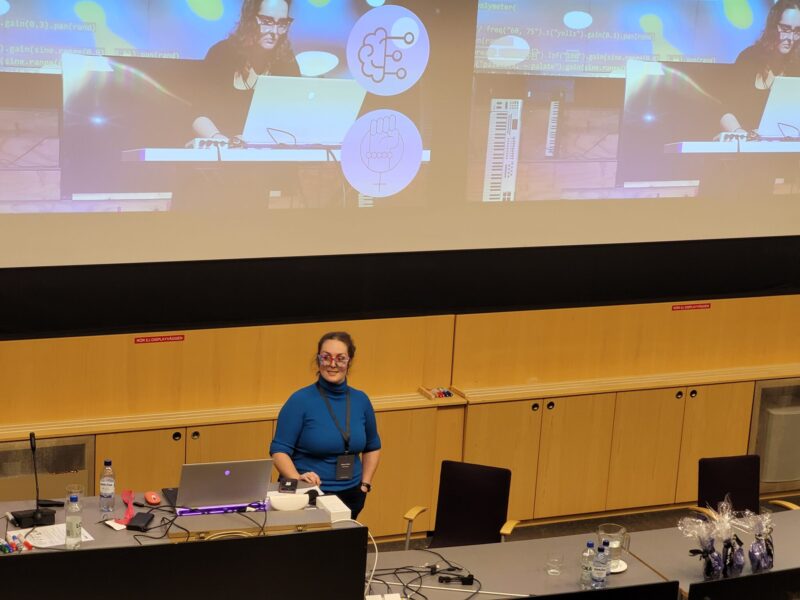
Kelsey Cotton, PhD student, Chalmers University of Technology.
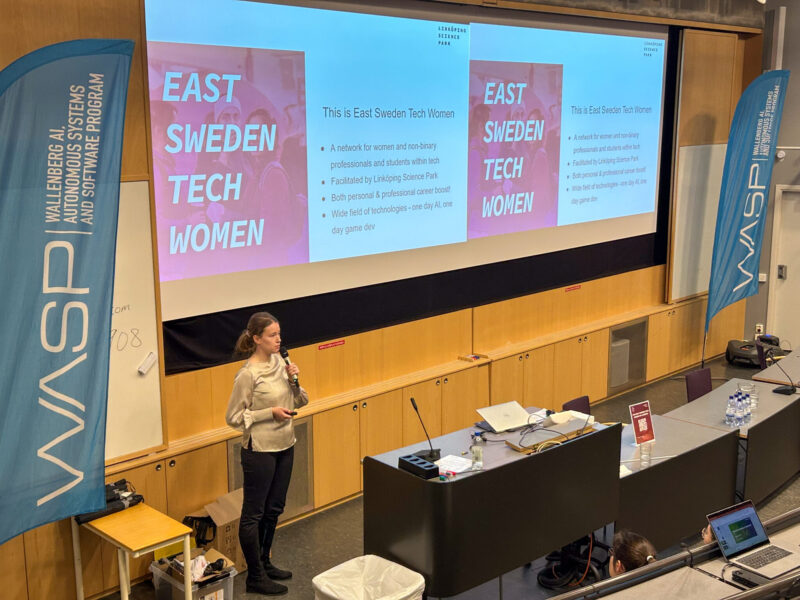
Julia Bergman, Linköping Science Park.
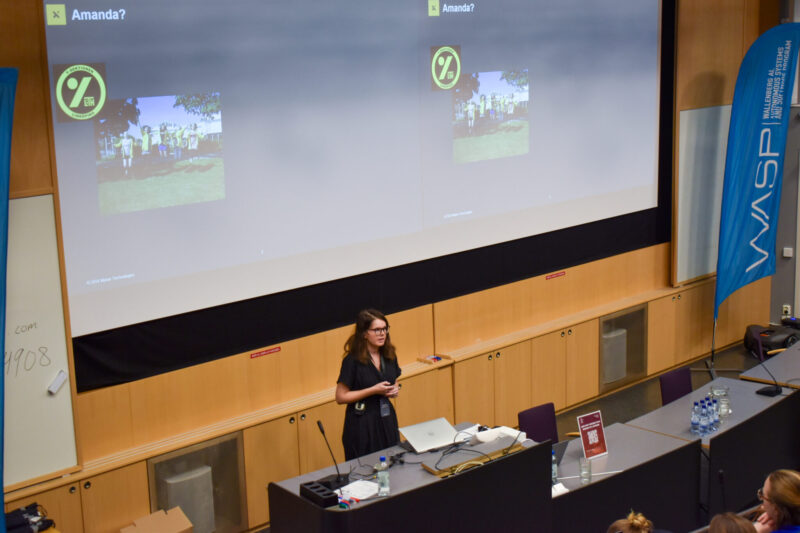
Amanda Berg, Research Developer, Maxar intelligence
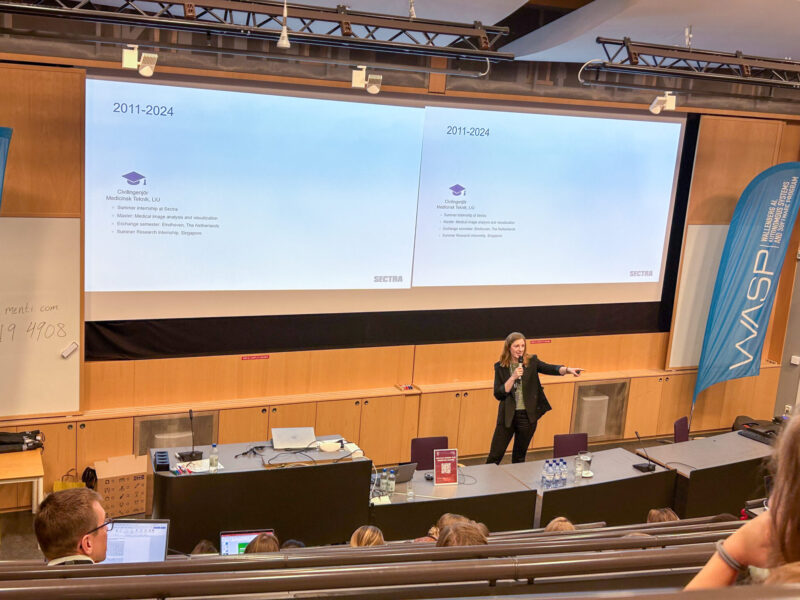
Karin Stacke, Research Scientist, Sectra.
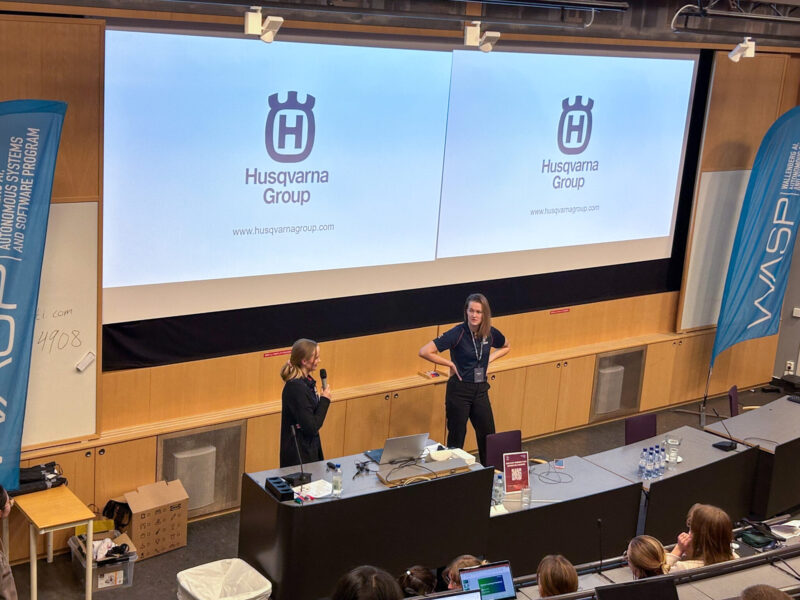
Saga Bergdahl, Software Engineer and Elsa Björling, Software Engineer at Husqvarna.
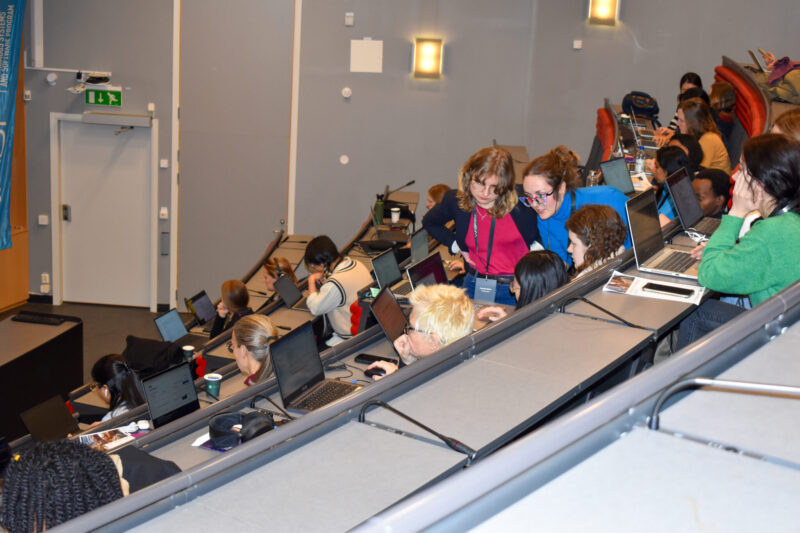
Tutorial session.
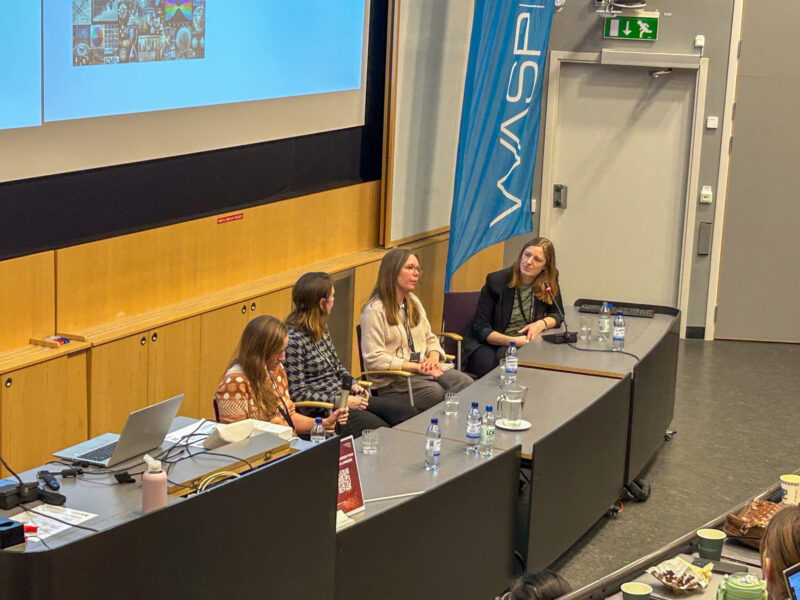
Panel discussion. From left: Judith Bütepage, ML Team Lead, Electronic Arts, Jenny Kunz, Postdoctoral researcher, Linköping University, Frida Blomstedt, Software Engineer Computer Vision, Combitech and Karin Stacke, Research Scientist, Sectra.
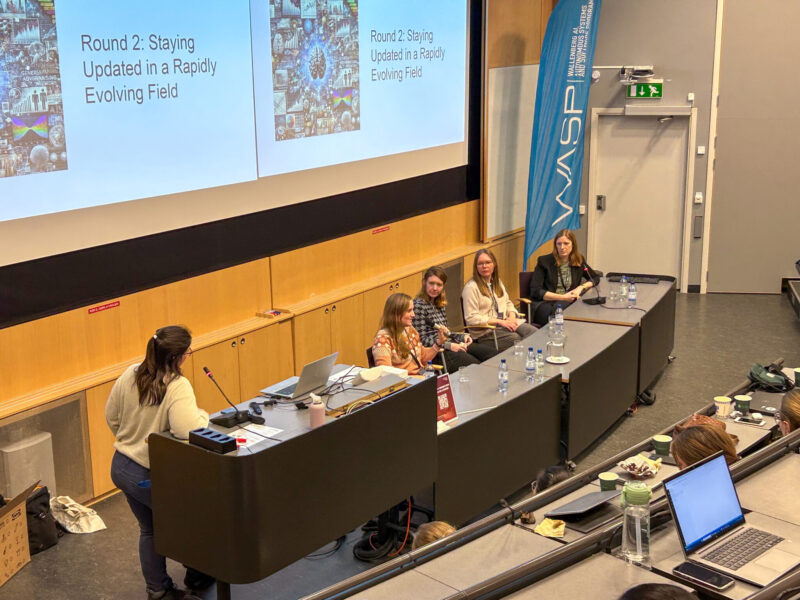
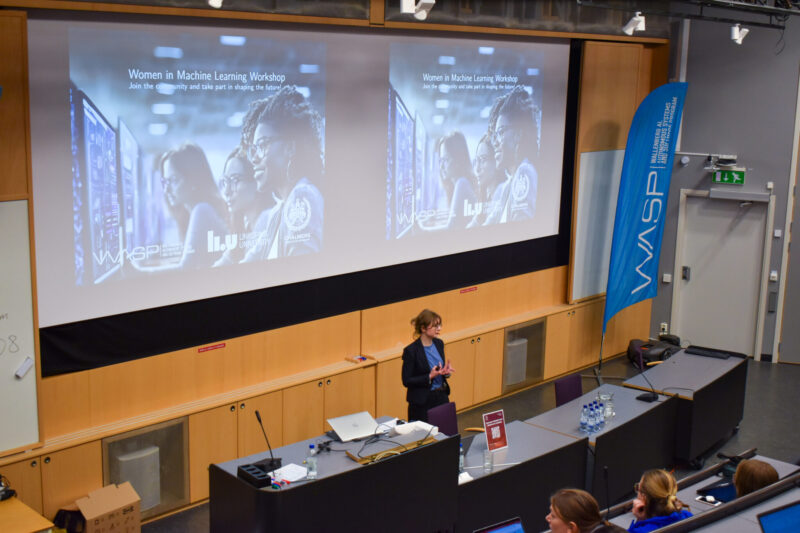
Amanda Olmin, WASP PhD at Linköping University and one of the organizers, welcomes everyone.
Interview with Amanda Olmin, WASP PhD and one of the organizers
Published: December 6th, 2024
[addtoany]

